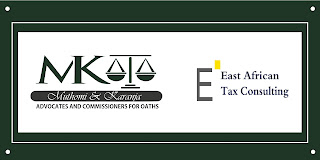Kenya Revenue Authority vs Kenya Bankers Association (Court of Appeal, Nairobi Civil Appeal No. 213 of 2018)
Summary: A lender (chargee) upon exercise of its statutory power of sale (sale of charged property in case the borrower defaults) is not obligated to pay Capital Gains Tax (CGT).
Background
On 4th October 2016, the Appellant, Kenya Revenue Authority (“KRA”) published a Notice discontinuing manual payment of both Stamp Duty and Capital Gains Tax (“CGT”). KRA required both taxes to be paid simultaneously online through the I-Tax System. I-Tax system was programmed not to allow payment of Stamp Duty unless CGT was also paid.
The Respondent, Kenya Bankers Association, (“KBA”) being an Association of forty-two (42) licensed commercial banks, one mortgage finance bank and two microfinance banks was aggrieved KRA’s action to twin the payment of CGT and Stamp Duty. Consequently, KBA filed a Judicial Review application at the High Court challenging KRA’s action.
The High Court declared that:
- KRA’s administrative action was unreasonable, unfair and influenced by an error of law.
- CGT is payable by the chargor upon registration of the Transfer and not by the chargee or the purchaser, unless there is a surplus from the proceeds of the sale as to constitute the chargee a trustee for the chargor.
- The High Court issued an order compelling KRA to allow payment of Stamp Duty on transfers, without requiring payment of Capital Gains Tax or an acknowledgment number for payment of CGT.
KRA appealed the decision.
Held
- A charge facilitates the transfer upon a chargor's failure to repay the sum secured by the charge. A chargee becomes the proprietor of the charge. The chargor remains the proprietor of the land. In executing the Transfer (after exercising its statutory power of sale), a chargee does so in its capacity as a nominee of the chargor.
- Money received after the exercise of the statutory power of sale is applied to pay rates, rents, taxes and charges. It is improper for the appellant to demand money that has not been received by a chargee.
- CGT is a charge on the income of a person. In order for one to be liable to payment of CGT, it has to be established that there has been a gain. Section 19 of the Land Act is not applicable as it refers to “taxes to be paid on the charged land”.
- KBA was not given an opportunity to present its points of view concerning the administrative action. KRA’s unilateral decision to demand collection of CGT from KBA members by twinning the payment of CGT and Stamp Duty was unfair and irregular.
Appeal Dismissed.
Statutes Referred to
- Section 2 of the Land Registration Act, 2012;
- Section 98(3) and (4) of the Land Act, 2012;Paragraph 5 (2) of the 8th Sch. to the Income Tax Act (Cap 470);
- Section 101 (a) of the Land Act, 2012;
- Section 3(1) and (2)(f) of the Income Tax Act;
- Paragraph 2 of the 8th Sch. to the Income Tax Act;Section 15(3)(f) of the Income Tax Act;
- Article 47 of the Constitution of Kenya, 2010;
- Section (4)(1) and (2) of the Fair Administrative Action Act, 2015.
Cases referred to
- Selle & Another vs. Associated Motor Boat Company Limited & Others [1968] E.A. 123
Implications
- The decision is a draw back on KRA’s aggressive tax collection approach. A change in the law may be necessary to appoint chargees as statutory agents for collection of CGT on charged property.
- It is the responsibility of the borrower to compute and pay CGT on their charged property. The borrower should liaise with the lender to ensure that surpluses from the statutory sale (if any) are applied to settle CGT.
- This decision is binding on the High Court, Sub-ordinate Courts and the Tax Appeals Tribunal unless KRA appeals to the Supreme Court, with leave of the Court.
Contact us for assistance:-
East African Tax Consulting
Starlings Muchiri (Director); or Samuel Karanja (Director)
Tel. +254 722 332729
Email.: advisor@taxeac.com
Tel. +254 722 332729
Email.: advisor@taxeac.com
East African Tax Consulting is an Associate of Muthomi & Karanja Advocates







